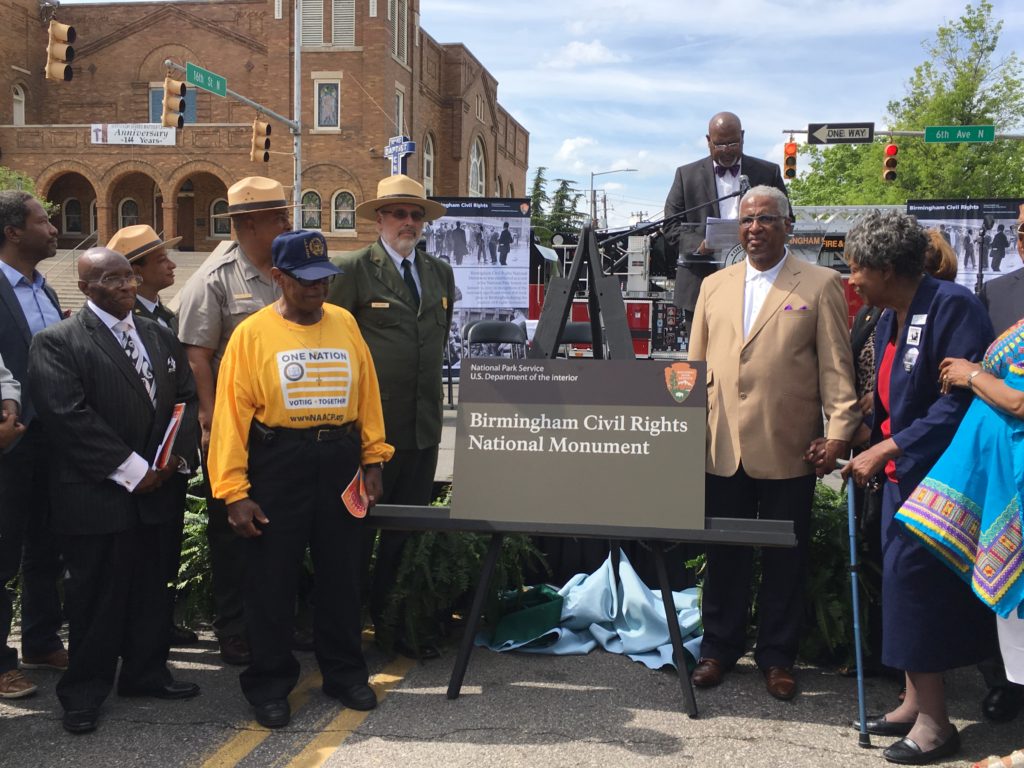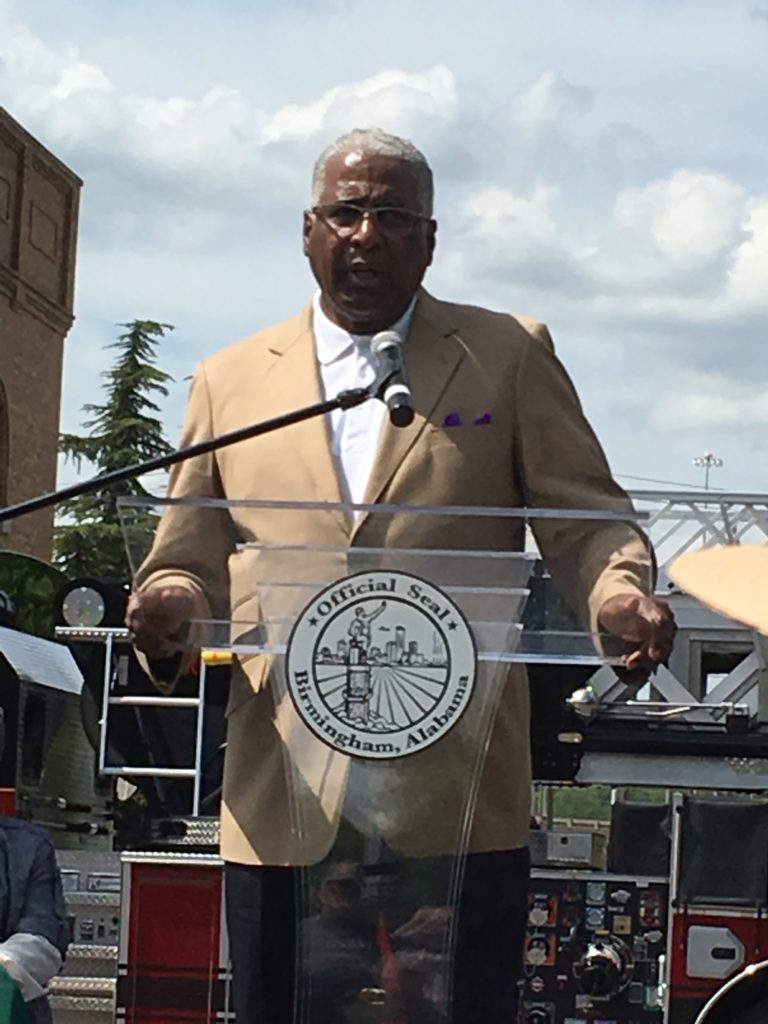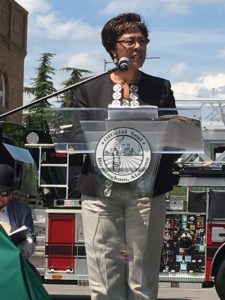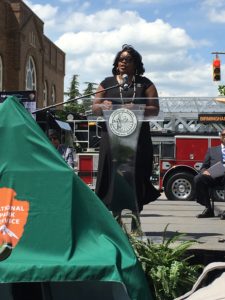
By Monique Jones
The Birmingham Times

For Carol Jenkins, niece of entrepreneur A.G. Gaston and Minnie Gaston, the Birmingham Civil Rights National Monument Dedication Celebration on Saturday was a validation of her famous family’s work in the city.
“I was so moved. Every minute of it was an affirmation of the work my aunt and uncle did in the city of Birmingham for 50, 60, 70 years,” she said. “…This was their life’s work. They loved this city, and to get this type of payback … is extraordinary.”
For Mayor William Bell, the celebration was “the beginning of a new recognition” for the city and those part of the Civil Rights movement who help usher changes for human rights around the world.
“We wanted to take the opportunity to tell our own story…of how black and white [citizens] [and] various religious organizations came together to…change the society that would [permit] a church to be bombed on a Sunday morning, that would kill four little innocent girls and maim so many others.”

The community celebration marking the establishment of Birmingham Civil Rights National Monument is the culmination of years of work on behalf of Bell, his City Hall staff, U.S. Rep. Terri Sewell, the National Park Service and National Trust for Historic Preservation.
The monument will include the Sixteenth Street Baptist Church, Bethel Baptist Church, Kelly Ingram Park, the Birmingham Civil Rights Institute (BCRI), the A.G. Gaston Motel and portions of the 4th Avenue Business District.
Carolyn McKinstry, one of the survivors of the Sixteenth Street Church bombing, which took place Sept. 15, 1963, was among those who addressed the crowd outside the Civil Rights Institute.
“We are here to reflect and to lament the sacredness of this time and place in history,” said McKinstry, who added that the monument reminder for citizens in Birmingham and across the nation to take up the call to “end racial hatred in our lifetime.”
“…I am grateful to God to stand as a survivor and as a witness to that tragedy, but also as an ambassador of Birmingham’s ongoing story, proclaiming our legacy of hope and love that was born on Sept. 15, and to remind us all of this fact—that love forgives,” she said.

Odessa Woolfolk, founding board chair of the BCRI, said the monument honors the sacrifices and bravery of the foot soldiers who “are the true heroes of the movement,” she said.
“These young people…did more to change America than all the rhetoric that was written and stated,” she said. “…We hope that this [monument] will create…models for applying the lessons to current and future civil and human rights struggles here and around the world and, perhaps, we shall visit anew the question that Dr. [Martin Luther] King raised 50 years [ago] when he asked, ‘Where do we go from here—chaos or community?’ That question needs to be answered even now.”
Birmingham City Councilor Sheila Tyson mentioned her personal connection to the monument.
“I am proud to be from this city, raised by a foot soldier, raised by a woman who was in the trenches [and] raised by the unsung heroes that we hear nothing about,” she said. “We need to make sure the world [and] our children know this city is here.”

Rev. Arthur Price, pastor of the Sixteenth Street Baptist Church, said the monument helps Birmingham continue to tell its story.
“It’s a story about catalysts of change,” he said. “Because of what happened here in Birmingham, it changed our thinking, it challenged our theology and it caused us to be thankful.”
The decision to create a national monument began years ago, said Bell, which was spurred on by public criticism in 2013 over the city’s failure to restore the A.G. Gaston Motel.
“It was due criticism,” he said. “When we looked to find the funds to do what was necessary to bring it back, it [didn’t] make sense to just repair it today and 20, 30 years from now, we still have the same problem.”
Attendees also included St. Paul United Methodist Church Pastor Horace Blount, Birmingham City Councilor Jay Roberson, along with members of the National Park Service and the National Trust for Historic Preservation. The culmination of the event included the unveiling of the official monument sign.
U.S. Rep. Sewell was unable to attend because of the funeral of her father.
However, in a statement Saturday, Sewell said, “Birmingham was the epicenter of America’s civil rights movement, and the Birmingham Civil Rights National Monument recognizes the remarkable contributions made by the foot soldiers and leaders of the movement.
“We can never repay the debts we owe to those who fought, bled, and died to secure the blessings of liberty, equality, and justice for all Americans during the struggle for civil and voting rights. The Birmingham Civil Rights National Monument will help preserve their stories for future generations. I am thrilled at the investments the National Park Service is making in Birmingham as part of the national commitment to protecting the legacy of our nation’s civil rights heroes.”
In 2016, Sewell introduced legislation, supported by the entire Alabama congressional delegation, urging creation of a national civil rights monument in Birmingham. These efforts culminated in the decision by President Barack Obama on January 12, 2017, to exercise his authority under the Antiquity Act to establish the Birmingham Civil Rights National Monument.



